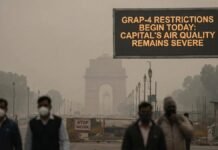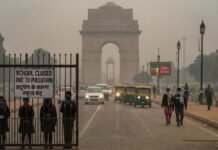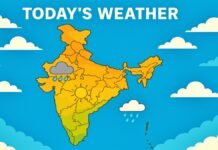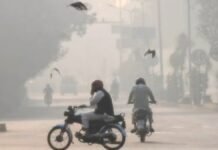
New Delhi: Delhi woke up to a thick blanket of fog and hazardous air on Tuesday, with the Air Quality Index (AQI) skyrocketing to 494 marking the worst pollution levels of the season. Key areas like Anand Vihar, Ashok Vihar, Bawana, Jahangirpuri, and Major Dhyan Chand Stadium hit the maximum AQI level of 500, categorized as ‘severe plus.’
According to the Central Pollution Control Board (CPCB), an AQI between 401 and 500 is deemed ‘severe,’ with above 500 classified as ‘severe plus.’ These levels pose severe health risks, especially for vulnerable populations.
Education Moves Online
In response, schools and colleges in Delhi and the National Capital Region (NCR) have shifted to online classes. Haryana’s Gurugram suspended all in-person classes for students up to Grade 12 from November 19 to November 23. Similarly, authorities in Ghaziabad, where the AQI reached 450, and Gautam Buddh Nagar, which includes Noida, have halted physical classes.
Travel Disruptions Amid Dense Fog
The dense fog led to significant travel disruptions across Delhi. Visibility dropped sharply, delaying 22 trains and canceling nine others, ANI reported. Air travel was also impacted, with multiple flights delayed or rerouted. IndiGo Airlines issued a travel advisory, warning passengers in Delhi, Amritsar, and Chandigarh about possible schedule changes due to adverse weather conditions.
Government Advisory and Emergency Measures
The Union Health Ministry issued an advisory urging states and union territories to ramp up health services and raise public awareness about the dangers of air pollution, particularly for at-risk groups. Officials have been directed to create localized action plans to mitigate the health impacts of climate change and pollution.
GRAP-IV Restrictions Enforced
Stage 4 of the Graded Response Action Plan (GRAP) has been implemented in Delhi, introducing strict anti-pollution measures. These include:
- Banning entry of non-essential trucks into Delhi unless they run on cleaner fuels like LNG, CNG, or BS-VI diesel.
- Halting all construction and demolition activities, including infrastructure projects such as highways, roads, and pipelines.
Authorities are also considering imposing the odd-even vehicle rule to reduce traffic emissions, where vehicles with odd and even registration numbers alternate on the roads.
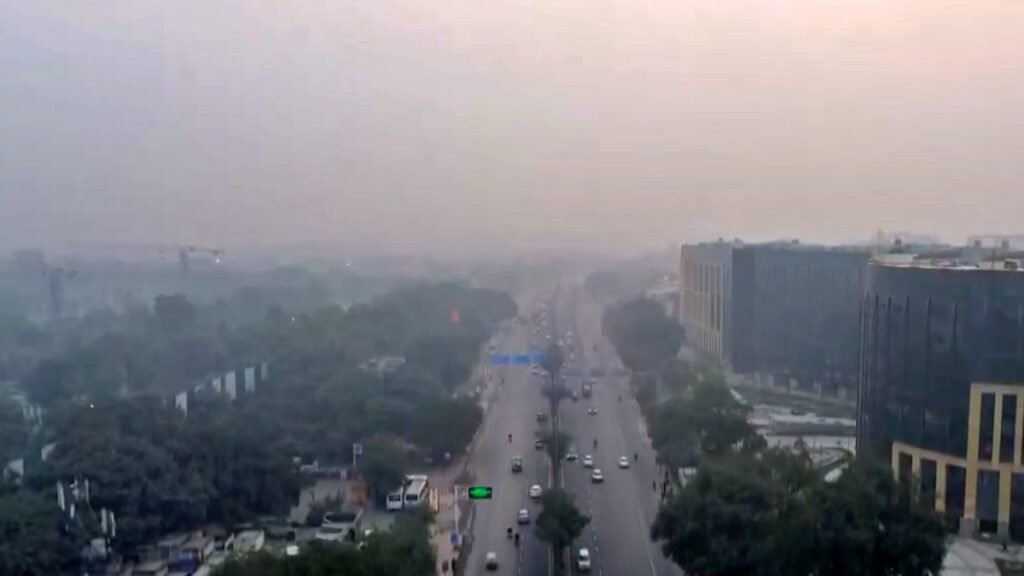
Delhi Residents Brace for the Worst
As the capital struggles with record pollution levels, health experts urge residents to limit outdoor activities and use air purifiers indoors. The city remains on high alert, with further restrictions possible if conditions fail to improve.
With air quality touching alarming levels and daily life disrupted, Delhi faces a growing environmental and public health crisis that demands urgent attention.




































